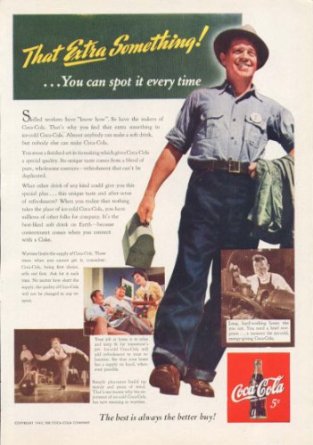By: Chris Warren
I consider myself to be among the lucky few who has a cool job that is engaging and interesting. A large majority of the time I like what I do, with occasional screw this! moments sprinkled in to remind me that it may be cool but it’s hardly paradise. I think I must have won some cosmic occupational lottery because for my whole life I’ve always seemed to land in nifty jobs as if by accident. Even through high school and college I managed to earn a buck without getting involved with the drudgery of fast food or retail.
 Now I’m in that strange zone where I’m certainly not a kid but also not nearly old enough to seriously consider retiring. I’m left wondering what’s next. Or if there even is a “next.” I would not mind doing something else, but since I’m content where I am I see no point in changing just for the sake of change. I’ve asked the self-analyzing question: If I looked into a crystal ball and saw myself retiring from the job I’m doing now, would the vision be depressing or comforting? Am I ok with this for the rest of my career?
Now I’m in that strange zone where I’m certainly not a kid but also not nearly old enough to seriously consider retiring. I’m left wondering what’s next. Or if there even is a “next.” I would not mind doing something else, but since I’m content where I am I see no point in changing just for the sake of change. I’ve asked the self-analyzing question: If I looked into a crystal ball and saw myself retiring from the job I’m doing now, would the vision be depressing or comforting? Am I ok with this for the rest of my career?
The short answer is yes, I’m ok with it. I still wonder though, is there anything better out there? Is this as good as it gets? I’ve decided not to beat the hell out of myself trying to resolve a question of circular logic. In theory, there is always something better, somewhere. It’s more worthwhile to focus on what’s right and positive about the job I already have.
It’s important to explain that being happy with where I am and being complacent and unmotivated to move forward are not the same thing. There was a period in my distant past where I was in a job that was respectable but well beneath my potential. I stayed there way too long, bullshitting myself that it was good enough. I managed to get out of that trap relatively unharmed and took a lesson with me: Be grateful for what you have but don’t ever assume it’s the end of the line.
Being surrounded by family and friends who are in jobs that are soulless and devoid of any feeling of a higher purpose, on top of paying barely enough to make it worth showing up every day, gives contrast to my own life and blunts the effects of my screw this! days. The workplace headaches I deal with are mild by comparison, and at least at the end of it all I receive a decent paycheck for my hassles. There may be something better, somewhere, but there is also something worse. Being far from the bottom is more important than being close to the top.
I used to have a coworker who was technically competent but by a very large margin had absolutely the worst attitude of anyone I’ve ever worked with. He could not go five minutes without prattling about how unfairly he was treated, had a lame excuse for everything, constantly argued with the boss, thought the whole company was plotting against him, blah, blah, blah. I spent a year trying to be his buddy: Reaching out, having man-to-man talks, pushing him towards a better path. It was a complete waste of my effort. He was officially fired for absenteeism, but the real deal was that management and pretty much everyone else, including me, was far beyond fed up with the pouting crybaby. Your approach to your job has more influence over your career path than everything else combined. Skills can be learned but attitude can only come from within.
No one should allow their career success to be defined solely by how many promotions and raises they can collect before they retire. It’s more meaningful and less stressful to show up every morning believing that every day is a good day, but some days will not be as good as others. I am, on the whole, a happy employee. I flatly refuse to let myself become the guy who bitches about everything. When I reach a point where I don’t feel I can go any further in the job I have, the time to move on will become self-evident.

